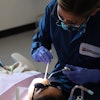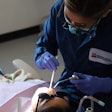Vermont has become the latest state to propose legislation that would create a dental therapist model designed to help address access-to-care issues in underserved areas.
HB 398, sponsored by Rep. Patsy French (D-Orange/Addison) and introduced February 28, would authorize and regulate the practice of dental therapy.
The bill calls for a dental therapy educational program that provides a minimum of two academic years of dental therapy curriculum, including at least 100 hours of dental therapy clinical practice under the general supervision of a licensed dentist. It would also allow a dental hygienist licensed by the state of Vermont to be licensed as a dental therapist upon completion of at least one year of dental therapy education.
With regard to scope of practice, the dental therapist would be allowed to provide oral healthcare services, including prevention, evaluation and assessment, education, palliative therapy, and restoration under the general supervision of a dentist. These services would include periodontal screening and partial charting, taking x-rays, dental prophylaxis, applying varnishes and sealants, fabricating mouthguards and occlusal guards, tooth reimplantation/stabilization, administering anesthesia, prepping cavities, placing crowns, and removing sutures.
Prior to performing any of the authorized services, the dental therapist would have to enter into a written collaborative agreement with a dentist who is licensed and practicing in Vermont. The supervising dentist would then accept responsibility for all services authorized and performed by the dental therapist pursuant to that agreement.
Vermont is one of five U.S. states chosen by the W.K. Kellogg Foundation last year to receive a total of $16 million to help develop dental therapist programs in those states.



















